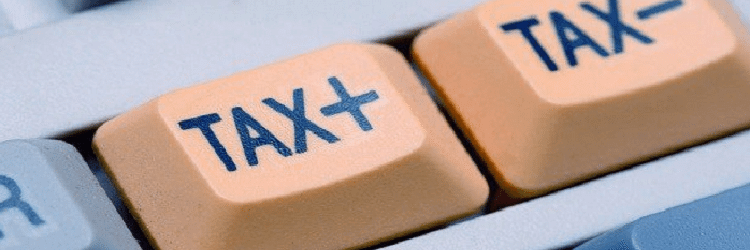
Personal side of GST Input Tax Credit (ITC)
“Why should government allow credit on food consumed on your trips to Delhi? It is hardly a business expenditure. You would have had dinner in any case,” argued my client vociferously. Generally, I tend to take a conservative view of any legal provision, perhaps due to my roots in the government, where I spent twelve years. But this time the winds were blowing in the opposite direction. I was of the opinion that Goods and Services Tax (GST) paid on all business travel expenses should have been allowed as credit because the trip was ‘in furtherance of business’.
I would not have survived and conducted my business if I had not eaten. I ate at the hotel where I stayed simply because I was away from my home on business — otherwise, I would have eaten my simple Daal-Rotiat home. My company bore these expenses because I was on an official travel, and therefore credit of taxes paid should have been allowed.
My client friend disagreed.
Peeping at the history of credits
Availability of credit has been a contentious issue in Indian indirect taxes since Modified Value Added tax (MODVAT) was introduced in 1986 with the Central Excise Tariff Act. Credit was allowed for just a few raw materials at that time, but restrictions were slowly removed as government saw the results. In 1994, a credit on capital goods was introduced, and a service tax credit was introduced in 2002. It had taken almost a generation to settle the law on credits, and the stability was disturbed once again when credit provisions were completely overhauled in 2011.
VAT credits, however, have been relatively stable since VAT was introduced in various states during 2005-07.
Expectations from GST
It was expected that unrestricted credit on all business expenses would be available under GST, as GST is an ‘end to end value added tax’, unlike the current hotch-potch of taxes. Section 16 of the Model GST law permits credit of input tax charged on any goods or services used in the course or furtherance of business of the person taking credit. However, the very next section prescribes certain restrictions on credit. One states that credit shall not be available for goods and/or services used for personal consumption.
It is logical to disallow taxes paid on personal expenditure, and other countries have similar policies. But the list of allowable credits on personal consumption differs from country to country. A sample is enclosed below.
| Country | Few items on which credit is not allowed | Few items on which credit is allowed |
| Australia |
|
|
| Canada |
|
|
| UK |
|
|
| India (under Model GST law) |
|
|
The ‘personal’ dilemma
The moot question, however, is, when does a business expenditure become a personal expenditure.
Let us take an example. Would an expenditure on light fittings or an air conditioner in the office be called ‘furtherance of business’? Almost no one would object to that. But would a coffee vending machine be eligible for similar treatment? Many would say ‘no’; it is for personal consumption, as drinking coffee is a personal choice, not mandatory. Some may even say that Model GST law specifically disallows credit on foods and beverages, and therefore credit on machinery used in food preparation should also not be available. Some may say that air-conditioning or lighting is a necessity without which the work cannot go on, while a coffee machine is dispensable. But if that’s the logic, a camera at the reception for monitoring movements of intruders would never qualify for ‘furtherance of business’.
The line between what pertains to business and what is personal is very blurred; it is like dusk, when one cannot say if it is day or night. The area of ‘personal consumption’ will always remain litigative till courts come out with rulings or government provides clarity. Model law prescribes a list of goods and services on which credit is not available, irrespective of whether they are used for furtherance of business (e.g., beauty treatment for a model or a fitness club for an actor would be disallowed despite being very relevant to their respective profession). However, when the law further disallows credit for ‘goods and services used for personal consumption’, it creates a grey area which is not conducive to the simplification of taxes. In any case, taxes paid on expenditures that are not in furtherance of business are never eligible for credit.
A case for credit on all business expenses
Could government simply allow credit on all business expenses, as the government of Maharashtra has done with the MVAT legislation for last 12 years? Opponents to this would say that people seek opportunities to bend the law whenever possible, and allowing such a blanket permission could lead to people charging groceries to their business accounts. A fair point, but law cannot be made with such delinquent tax payers in mind. If government was worried about loss of revenue, they could have created a blanket 95% credit on all business expenses. That would bring certainty to the minds of tax payers and protect government revenues at the same time. Indeed, government tried this with the 1998 Central Excise Tax, but dropped the idea after less than a year. May be the idea was ahead of its time then; like the Guru Dutt movies, it may be a clincher now.
Thanks to Dr. Waman Parkhi, Partner, Indirect Tax, KPMG (in India) for this blog contribution.
For GST readiness of your company using automation, fill contact us form here https://www.avalara.com/in/products/gst-returns-filing/
Disclaimer: This blog is made available by Avalara for educational purposes only as well as to give you general information, not to provide specific legal or tax advice. The blog should not be used as a substitute for competent legal or tax advice from a licensed professional in your state or country.



